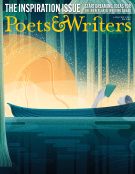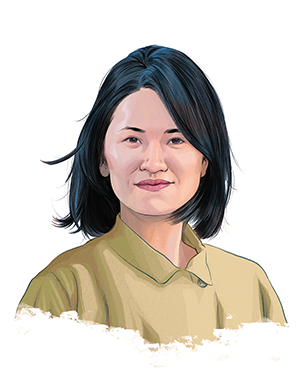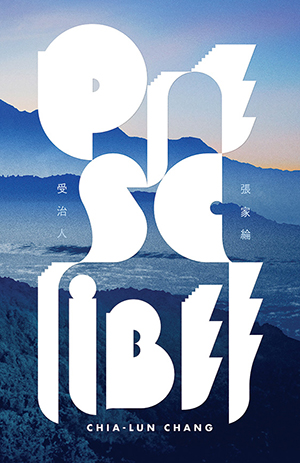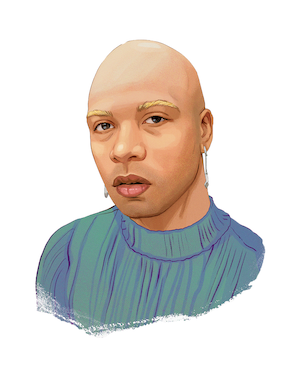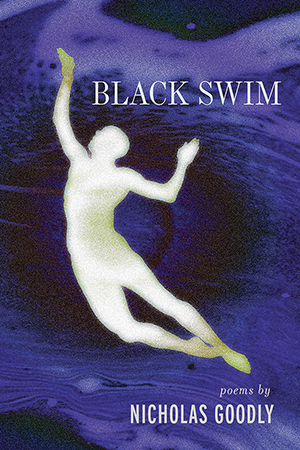Chia-Lun Chang
Prescribee
Nightboat Books
(Nightboat Poetry Prize)
to balance the system
some have split the skin
a few have hidden
most cut off tails
to survive or sign up for surveillance
—from “Do Not Grow Flowers for Oxygen”
How it began: For a while I couldn’t grasp the urgency of making a book. I took creative writing classes after arriving in the States, to practice English, but I didn’t start writing “poems” until my MFA class in 2012. My teacher, Anselm Berrigan, shared examples of poems that could not have been other forms of writing, and it really stimulated my understanding of poetry. At the time I also wrote fiction and nonfiction, but my peers thought my poems were stronger. From 2014 to 2019, to maintain my immigrant status, I had to act as a working poet.
I enjoy writing poems and how difficult the process can be. But what’s the purpose of publishing a collection of mine? Honestly, I still don’t know. To me, the difference between writing a poem and a book of poems is that I have to let the book go. A poem is an ongoing and eternal journey, dwelling in editing. A book of poems is a farewell; as soon as it is printed and announced one must be ready for the departure and to engage in a conversation with readers.
Inspiration: In-between life, off-center, women, the underdog’s story, and conversations with family. The anger when authorities abuse their power. The process of making life decisions. I believe that I’m a product of culture and society. Growing up in Taiwan, where we had a strict education system, I was raised to fit in a box, trim my differences, and suppress whimsical perspectives. I didn’t want to be put in a box, but it was not all bad inside. This experience taught me to question and analyze my desires and apply that to my writing. I tend to be attracted to intense, strange, and dissonant languages and scenes.
Influences: Charles Yu, for the sharpness, hopelessness, and humor that stir together in his books. In Interior Chinatown (Pantheon, 2020), one of Yu’s characters, Dorothy asks, “How do we have a love story in a place like this?” Her husband, Ming-Chen Wu, replies, “It’s true. We don’t choose our circumstances. We will have to fall in love when we can. Stolen moments. Between jobs, between scenes. Not a love story. But our story.” For most of my life, I’ve been anxious and suffering from discomfort. This paragraph teaches me to love and to keep writing, even when the situation is unbearable. In Taiwan, I was surrounded by dramatic, negative, and mad comments due to geopolitical tensions. The threat of war surrounded us. But I’ve also met the best humorists. To internalize the chaos, Yu captures and balances these sensations so well and they puncture me.
Theresa Hak Kyung Cha’s Dictee, a classic book about multilingualism, displacement, tongues, and herstory. Aimé Césaire’s Notebook of a Return to the Native Land. This book taught me how to navigate my rage and not overburn the pages. Graham Greene’s The Quiet American is my guidebook to modern American anthropology.
Writer’s block remedy: Manga, performances, fine arts, and conversations with peers.
I have always been obsessed with manga. My family asserted that I’d grow out of it. Unfortunately, they’re wrong. Manga is the most complicated art form to me. It combines many elements. I also love how manga instantly bounces between high and low art—the topics range from philosophy to the mundane. You can appreciate the drawing or the story, but the best is when you can enjoy both!
Living in cities, it’s such a privilege to go to art events; I enjoy literary talks, live performances, museums, galleries, and exchanging ideas with others. When I get burnt out, I observe outside activities and make notes. It’s important to take a break and do nothing.
Advice: Give yourself time. Take classes from your favorite writers and thinkers. Take on interesting projects when life permits. Try everything and challenge yourself: Explore ideas, forms, styles, voices, and parodies. Narrow and select the ones speaking in your shape, the ones you choose to spend more time with (and within their histories), and the ones that move, excite, terrify, and shock you. Write something honest and rebellious. Be vulnerable and miserable. Allow the language to thrive outside of your body.
Putting the book together: This was the most difficult part. I proposed a rough outline with particular poems placed in a certain order, then my editor at Nightboat, Gia Gonzales, listened to the story of each poem and arranged them together with care. With many poems having distinct personalities, Gia was extremely helpful in binding them together.
What’s next: A script with director and cinematographer Haoyan of America about foreign students adventuring in the “Work and Travel USA” program. My second book, an extension from my Belladonna chaplet, An Alien Well-Tamed. Translating English poems to Taiwanese Mandarin, since it is my first language. I’m looking for platforms to introduce my favorite poems to Taiwanese readers.
Age: 36.
Residence: Brooklyn, New York; Taipei and Puli, Taiwan.
Job: I earn a living as a content strategist and conversation designer in the tech sector. I also teach poetry, fiction, and translation occasionally.
Time spent writing the book: The first poem was written in 2011. That being said, eleven years.
Time spent finding a home for it: After receiving my green card in 2019, I lost my passion, became depressed, and didn’t know what to do next. After that I submitted my manuscript as a chapbook to Gold Line Press, where I was a finalist for its Poetry Chapbook Competition. Muriel Leung, the former editor in chief, gave me helpful feedback and motivation by suggesting that I turn my manuscript into a full-length book. I wanted to try something new to escape my depression, so I took her advice. I built my manuscript up to fifty-five pages and submitted it to three publishers. Three months later, Nightboat picked it up; then I rewrote, edited, and added twenty more pages.
Recommendations for recent debut poetry collections: I’m excited to read debuts from other Nightboat authors, including imogen xtian smith (stemmy things) and Wo Chan (Togetherness). Also, forthcoming titles: Sarah Audsley’s Landlock X (Texas Review Press) and Omotara James’s Song of My Softening (Alice James Books).
Prescribee by Chia-Lun Chang
![]()
Nicholas Goodly
Black Swim
Copper Canyon Press
you ask the moon
for your reflection
she gives you
her last breath
—from “Scrying”
How it began: I was compelled to write this book because I knew it had potential to speak to people in the same way that writing the poems spoke to me. I wanted to create a book that explored a multitude of voices, allowing Black and queer people, as well as others, to identify with these poems and find solace in that recognition. I saw an opportunity to touch the lives of people I care about by sharing the richness of my innermost feelings.
Inspiration: Before I was a writer I was a contemporary dancer and did a lot of work to understand how to express the body, or how the body expresses itself. I have always paid close attention to the ways the body uses sensation to communicate with us. I think this influences my poetic work as I stay connected to sensory information passing to and from the body, and what that communicates to the self and others. I am interested in intuitive sense, the language of intimacy beyond what we know on an intellectual level. I play with combining voices and texturally rich images to evoke feelings we know but can’t articulate, feelings that are bigger than the sum of the words used to describe them.
Influences: Danez Smith was one of the first living poets I read and felt a kindred connection to. It took a whole day for me to read Don’t Call Us Dead because it was so emotionally overwhelming, like I was being seen, really, for the first time. I admire so much about their craft and play while writing profound and revolutionary work. CAConrad is someone I return to for lessons on what it can mean to be a poet, how to extend the artistic practice beyond the page, and how to tap into the true energy of things. I learned about the gift of strangeness from Dorothea Lasky, how to tell the truth, and how to wield the powers of being fabulous and brave to devastating effect. Wayne Koestenbaum is another writer I look to for his prolific body of work, his range, and his ability to write about what he loves passionately and intelligently, and put his whole self in it, every time.
Writer’s block remedy: I watch a lot of documentaries on artists I admire from the past. Poets, painters, dancers, critics, anything I can get my hands on. It’s hard not to watch those and get a tinge of jealousy, a drive to churn something out, in any medium, to just do something. Learning about how disciplined and driven my heroes are makes me want to aim for that level of obedience. Hearing about different artists’ concerns and practices also gives me new ideas to play with in my own way. It’s one-part motivation, one-part inspiration, the perfect way to get me back to the page.
Advice: Trust the process. Take all the time you have to refine your work. You get only one first impression on the world, no need to rush it. Urgency, along with time, is an illusion, or a matter of point of view. Keep editing. Until it’s in print, the manuscript is still alive. Make choices that scare even you. The actual writing of the book is the best part; soak in all the pleasure you can from an otherwise grueling process. An artist will really love the work of it.
Finding time to write: The writing comes out when it’s ready; what I have to actively make time for is reading. I used to work at a library and made sure to sneak in at least an hour of reading time a day. The more I read, the more inspired I get to write.
Putting the book together: I looked at a manuscript as creating a new world or space in the mind/mind’s eye, a house with many rooms in it. It’s my job when bringing people into that world to walk people through it. What do I want to show them first? Does it make sense to put the bathroom next to the garden? How can I take the reader from the kitchen to the bedroom? Did I move too fast through the pool house? Did I spend too much time showing off the walk-in closet? I wanted to organize the collection so the path opens up in front of the reader organically. The goal is for each poem to be in a place that allows it to shine within the context of the book, a context I am responsible for creating. Changing the poetic attention from micro to macro in this way was the hardest part, so inviting and trusting outside voices to edit at this stage was helpful. It’s almost a different skillset.
What’s next: I am writing towards a second collection, particularly trying more ekphrastic modes. I’m still writing very Black, very queer poems, and I’m still a squishy bundle of messy emotions. We’re just turning up the dial on all those things.
Age: 31.
Residence: Atlanta, born and raised.
Job: I am in the creative writing PhD program at Florida State University, a member of the performing arts platform Fly on a Wall, and assistant poetry editor of Southeast Review.
Time spent writing the book: First drafts of some poems trace back as far as nine years ago, maybe more. I like the poems that have been marinating for a long time. The variety in voice over the years adds some welcome flavor to the collection.
Time spent finding a home for it: It took around four years to find a publisher for Black Swim. I am grateful for each rejection, because every no was an opportunity to review and edit the work little by little, until the version that got accepted was leaps and bounds greater than what I originally sent out. A book is never finished, but I am happy I got time to put my best foot forward for my debut.
Black Swim by Nicholas Goodly







